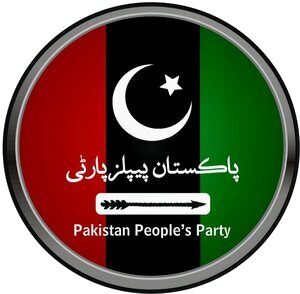
The Workers' Party is a centre-left political party in Brazil that is currently the country's ruling party. Some scholars classify its ideology in the 21st century as social democracy, with the party shifting from a broadly socialist ideology in the 1990s, although the party retains a left-wing and marginal far-left faction to this day. Founded in 1980, PT governed at the federal level in a coalition government with several other parties from 1 January 2003 to 31 August 2016. After the 2002 parliamentary election, PT became the largest party in the Chamber of Deputies and the largest in the Federal Senate for the first time. With the highest approval rating in the history of the country at one time, President Luiz Inácio Lula da Silva was PT's most prominent member. Dilma Rousseff, also a member of PT, was elected twice but did not finish her second term due to her impeachment in 2016. The party came back to power with Lula's victory in the 2022 presidential election.

The Democratic Alliance is a South African political party and the official opposition to the ruling African National Congress (ANC). The party is broadly centrist, and has been attributed both centre-left and centre-right policies. It is a member of Liberal International and the Africa Liberal Network. The DA traces its roots to the founding of the anti-apartheid Progressive Party in 1959, with many mergers and name changes between that time and the present. The DA ideologically shows a variety of liberal tendencies, including social liberalism, classical liberalism, and conservative liberalism.

The Pakistan People's Party is a centre-left political party in Pakistan. It is currently the first-largest party in the Senate and third-largest party in the National Assembly. The party was founded in 1967 in Lahore, when a number of prominent left-wing politicians in the country joined hands against the military rule of president Muhammad Ayub Khan, under the leadership of Zulfikar Ali Bhutto. It is affiliated with the Socialist International. The PPP's platform was formerly socialist, and its stated priorities continue to include transforming Pakistan into a social-democratic state, promoting egalitarian values, establishing social justice, and maintaining a strong military. The party, alongside the Pakistan Muslim League-Nawaz and the Pakistan Tehreek-e-Insaf, is one of the three largest political parties of Pakistan.

The military dictatorship in Brazil, occasionally referred to as the Fifth Brazilian Republic, was established on 1 April 1964, after a coup d'état by the Brazilian Armed Forces, with support from the United States government, against president João Goulart. The Brazilian dictatorship lasted for 21 years, until 15 March 1985. The coup was planned and executed by the most senior commanders of the Brazilian Army and received the support of almost all high-ranking members of the military, along with conservative sectors in society, like the Catholic Church and anti-communist civilian movements among the Brazilian middle and upper classes. The military regime, particularly after the Institutional Act No. 5 in 1968, practiced extensive censorship and committed human rights abuses, including institutionalized torture and extrajudicial killings and forced disappearances. Despite initial pledges to the contrary, the military regime enacted a new, restrictive Constitution in 1967, and stifled freedom of speech and political opposition. The regime adopted nationalism, economic development, and anti-communism as its guidelines.

The Brazilian Social Democracy Party, also known as the Brazilian Social Democratic Party or the Party of Brazilian Social Democracy, is a political party in Brazil. As the third largest party in the National Congress, the PSDB was the main opposition party against the Workers' Party (PT) administrations of Luiz Inácio Lula da Silva and Dilma Rousseff from 2003 to 2016.
Chief Samuel Oluyemisi Falae, is a Nigerian banker, administrator and politician, he was secretary to the military government of Ibrahim Babangida from January 1986 to December 1990, and was briefly the Finance Minister in 1990. He ran for president in Nigeria's Third and Fourth republics.
Anarchism in Nigeria has its roots in the organization of various stateless societies that inhabited pre-colonial Nigeria, particularly among the Igbo people. After the British colonization of Nigeria, revolutionary syndicalism became a key factor in the anti-colonial resistance, although the trade union movement deradicalized and took a more reformist approach following the country's independence. The contemporary Nigerian anarchist movement finally emerged from the left-wing opposition to the military dictatorship in the late 1980s and saw the creation of the Awareness League.
John Olukayode Fayemi ; born 9 February 1965) is a Nigerian politician who served as governor of Ekiti State from 2018 to 2022. He previously served in office between 2010 and 2014 before losing re-election to Ayodele Fayose. He was also the Minister of Solid Minerals Development in President Muhammadu Buhari's cabinet from 11 November 2015 to 30 May 2018, when he resigned to contest for a second term as Governor of Ekiti State. He is the pioneer president of the Forum of Regions of Africa (FORAF) since 9 September 2022.

The Liberal Party is a conservative political party in Brazil. From its foundation in 2006 until 2019, it was called the Party of the Republic.
The Social Democratic Party of Nigeria (SDP) is a centre-left political party in Nigeria. It was created alongside the National Republican Convention by former military president Ibrahim Babangida, as part of a democracy project meant to form two detribalized political parties – one slightly to the left and one to the right. During the Nigerian Third Republic it was seen as a moderate party attractive to young radical intellectuals and socialists. In its manifesto, it called for concerted efforts to improve welfare and fight for social justice.

The Labour Party (LP) is a social democratic political party in Nigeria. The party was created in 2002 and was previously known as the Party for Social Democracy (PSD) before changing to its current name the following year. Built on the ideology of social democracy, the party aims to promote and defend social democratic principles and ideals for the purpose of achieving social justice, progress and unity.

Kayode Oladele is a Nigerian human rights activist, lawyer and politician who was a member of the Nigerian House of Representatives representing Yewa North/Imeko-Afon Federal Constituency, Ogun State, from 2015–2019. He was the Chairman of the House of Representatives' Committee on Financial Crimes and member of the House Committees on Justice, Human Rights, Rules and Business, Environment, Healthcare Services and Agricultural Institutions. He was elected under the platform of the All Progressives Congress on 11 April 2015. Prior to that, he was Chief of Staff, office of the Chairman, Economic and Financial Crimes Commission (EFCC), a law enforcement agency that investigates financial crimes.

Olusegun Rahman Mimiko ; born 3 October 1954), is a Nigerian medical doctor and politician who served as governor of Ondo State from 2009 to 2017. He was the senatorial candidate of the Zenith Labour Party for Ondo Central District in the 2019 Senate elections. He served as the 16th and fifth civilian governor of Ondo State, the first two-term governor of Ondo State, and the first Labour Party governor in Nigeria. Mimiko was previously a federal minister for housing and urban development, a secretary to the Ondo State Government, and a two-time Ondo State Commissioner for Health.

Gbenga Toyosi Olawepo is a Nigerian human rights activist and businessman. Olawepo first was recognized as an anti-apartheid activist; he and three other students' leaders of the University of Lagos were clamped into the over-crowded Nigeria Police cell in April 1989 after an anti-apartheid protest. The military regime that was growing increasingly repressive and intolerant of freedom of expression in Nigeria then ordered the detention of the student activist. The Education Editor of Guardian Express – Joe Idika- published an exclusive report on the plight of the quartet in what was an exposé on the deplorable condition under which detainees are held in the Nigerian Police facilities. The report was also a story of the visit of Margaret Thatcher over her government's pro-apartheid policy, which the student-labour protest was opposing.

Presidential elections were held in Nigeria on 12 June 1993, the first since the 1983 military coup ended the country's Second Republic. The elections was the outcome of a transitional process to civilian rule spearheaded by the military ruler, Ibrahim Badamasi Babangida. The unofficial result of the election – though not declared by the National Electoral Commission (NEC) – indicated a victory for Moshood Kashimawo Olawale Abiola of the Social Democratic Party (SDP), who defeated Bashir Tofa of the National Republican Convention (NRC). The winner of the election was thus never declared as the elections were annulled by Babangida, citing electoral irregularities. The annulment led to protests and political unrest, including the resignation of Babangida and a weak interim civilian government, and culminated in the continuation of military rule in the country with Sani Abacha ascending to power as the military head of state via a bloodless coup later in the year.
Paulinus Igwe Nwagu is a Nigerian politician who was a representative for Ezza North/Ishielu constituency of Ebonyi State, Nigeria in the House of Representatives. In the April 2011 national elections, he was elected Senator for Ebonyi Central running on the People's Democratic Party (PDP) platform.
In Marxist philosophy, the dictatorship of the proletariat is a condition in which the proletariat, or working class, holds control over state power. The dictatorship of the proletariat is the transitional phase from a capitalist and a communist economy, whereby the post-revolutionary state seizes the means of production, mandates the implementation of direct elections on behalf of and within the confines of the ruling proletarian state party, and institutes elected delegates into representative workers' councils that nationalise ownership of the means of production from private to collective ownership. During this phase, the administrative organizational structure of the party is to be largely determined by the need for it to govern firmly and wield state power to prevent counterrevolution, and to facilitate the transition to a lasting communist society.
Festus Bunmi Olusona is a Nigerian human rights activist and politician.
The African Democratic Congress (ADC) is a political party in Nigeria. As of 2022, Ralph Nwosu is the National Chairman. There are 2 ADC members currently in the Nigerian National Assembly. They are all members of the House of Representatives and represent constituencies in Kogi State. There are no ADC members currently in the Nigerian Senate.










